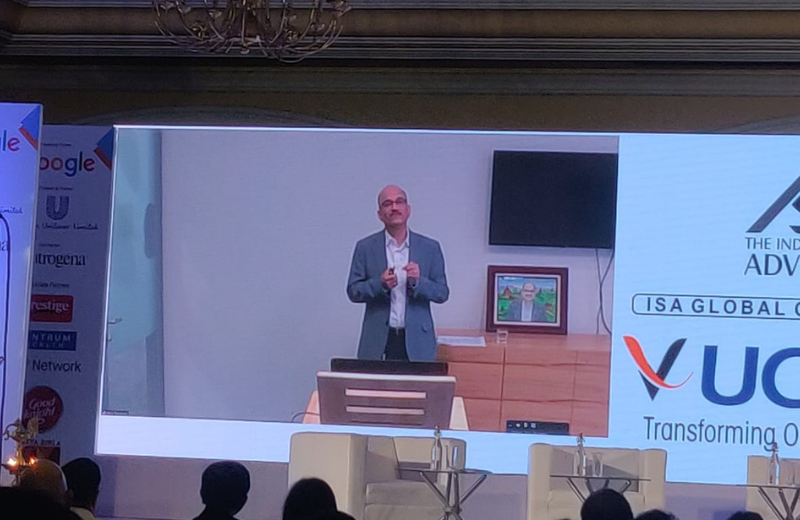The second session at the third edition of the ISA Global CEO conference witnessed Nitin Paranjpe, chief people and transformation officer, Unilever, share his views on the digital ecosystem creating transformational change and how it will affect businesses.
Paranjpe said, “To say that the world is going through unprecedented times is stating the obvious. The Covid-19 pandemic and the geopolitical tensions globally have affected our society at large. Today, we find ourselves in a world that is in an economic slowdown.”
To iterate how the world is grappling with unprecedented times, he gave an example of crude oil in this economic slowdown.
"Unrefined petroleum is trading at US$100. However, the same crude oil in 2020 was trading at US$-37. If this isn’t a VUCA world, where the market would trade at a negative price, then I don’t know what is," he remarked.
Paranjpe stressed that such is the extent of volatility that we will have to witness in the near future.
Certainty in the VUCA world
Paranjpe said that one thing that will remain constant in a VUCA world is change.
He expressed, "There has been a lot of change that has taken place in the last 20 years, ever since Web 1.0 emerged."
Speaking about how 'change' in the VUCA world will make certain tools and technologies redundant, Paranjpe shared, “Most of the things that we think are indispensable in our life didn’t even exist 20 years ago. It will be difficult to see that most of the things that we think that we can’t live without currently will become redundant before the end of the century."
Paranjpe explained the reasons for this rapidly accelerating change.
“Technology is one area that is digitising every area of our lives. It has changed the way we live, shop and play. Some statistics are related to this change. The data consumption numbers in India show that there has been a major impact on data. Around 14 gigabytes per month/per head is the digital consumption rate in India. This data consumption is ahead of most of the well-developed economies”, he stated.
Transformational change
Due to the constant progress in digital consumption, Paranjpe believed that the convergence of media, entertainment, commerce, digital media and technology is blurring the lines in marketing. He added that these changes are creating new business models.
He added, “Web 3.0 will also be a fundamental change that will address the issues that web 2.0 faced and will aim to create effective possibilities.”
Paranjpe shared three distinct features that will create transformational change with web 3.0:
- Web 3.0 will give people control over data
- The quality of search will be improved through AI
- An immersive experience will be created through the metaverse
“If you combine these three transformational changes and remarkable technologies like blockchain and decentralised networks, the possibilities for 3.0 are being created sooner than we expected. This is why existing businesses will need to adapt or they will run the risk of being disrupted by this transformational change," Paranjpe commented.
Algorithm bias and creating a brand-safe environment
Algorithm bias is a challenge that has come about in recent times and poses a challenge to the media ecosystem. To tackle this, Paranjpe stated that regulations and legal frameworks that are being created will ensure safety in the path toward web 3.0.
In his closing remarks, he said, “Rapid digitisation has created new businesses. The shift to web 3.0 is here. It will create enormous opportunities. It will bring booms and busts. But this time we will benefit through hindsight by putting people in charge of the data. This collaboration will be required at a grander scale, and advertisers will also need to come together to bring that transformational change. The media fraternity will need to join forces to create a responsible media safe environment.”

